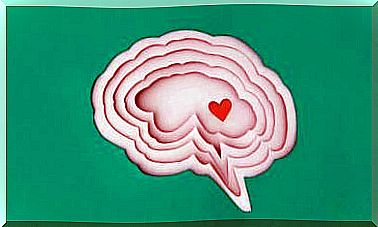4 Qualities Of A True Friendship

Friends are a strong and eternal pillar in the lives of human beings. We could say that they are our life companions. It is well known that true friendships do much more than help us when we need it.
This hypothesis is not only part of popular wisdom, but there is research that affirms that a broad and solid social support lengthens our life expectancy.
But in a friendship many times we have doubts about. What is it that differentiates a true friendship from a simple partner? What emotional requirements does that friend have that make him or her unique and fall into the category of “best friend or friend of the soul” in our hearts?
According to Robert Rowney, a psychiatrist and director of the mood disorders unit at the Cleveland Clinic, there are certain habits that distinguish true friends from those who are not.

Next, we will explain the four qualities to know how to differentiate a true friendship from a partner or acquaintance.
Of course, to these four indicators we must add the ability and confidence to tell the truth or to confront reality even if this initially hurts or is unpleasant for us.
What are the 4 qualities that distinguish a true friendship from other relationships?
1. They motivate us to accept more aspects of ourselves
Human beings have a tendency to be very self-critical and this can lead us to not have constructive thoughts about ourselves.
The psychiatrist Rowney notes that a true friend encourages us when we are being too negative and declares that “people feel better when they are surrounded by close people, who provide support and encouragement when they need it.”
Those closest friends will be the ones to express a disagreement when they perceive that we are dealing harshly with ourselves. “Real friends increase our self-esteem naturally, and in turn, encouraging a friend makes us feel better about ourselves.”
2. They tell us when we are wrong
They are confident enough to be clear that they want the best for us and therefore to let us know when we are really making a mistake. None of us are perfect and our friends are able to be aware of our mistakes, and share them with us to learn.

Subtlety also reveals a person who is really special in your life and has an important role. “If he is a recent friend or not so close, he will not dare to say something that could bother you; Instead a true friend, someone you really trust, will know how to tell you what you need to hear. It is very important to have friends who are clear and direct ”.
3. You can count on their help and support
One of the incredible characteristics that your best friend will be happy to share with you is his eternal concern and attention towards you. ” A true friend is there when he considers your needs as his own, ” says Rowney.
If you want to check if one of your friends shares the gift of attention to your special person, check if he / she uses or silences his / her mobile phone when you are together. A study carried out in the United Kingdom in 2012 maintains that the presence of a mobile phone can distract us when we are with someone. Your best friend will not allow that in front of you.
The help and support that is shown and provided in friendship is so great that it even triggers our levels of empathy, as this study from the University of Virginia (United States) reveals. These researchers discovered that the brain activity of a person when faced with a threatening or dangerous situation is practically the same as that manifested when his friend is. That is, the ability to put ourselves in the place of the other is accentuated to such an extent that we have a neuronal activation equivalent to that of our friends. Amazing isn’t it?
4. He listens to you with his heart
It is a classic habit to talk to people and that most cannot help but change the subject to talk about themselves. You will agree with me that conversations with our true friends are not monologues or soliloquies. This is not how you build a true friendship.

When we are able to maintain an open dialogue with a person, we have a better chance of strengthening the relationship. Paul Sacco, PhD and assistant professor at the University of Maryland School of Social Work says the key to a balanced conversation between the two of you is actively paying attention to what the other person is saying.









